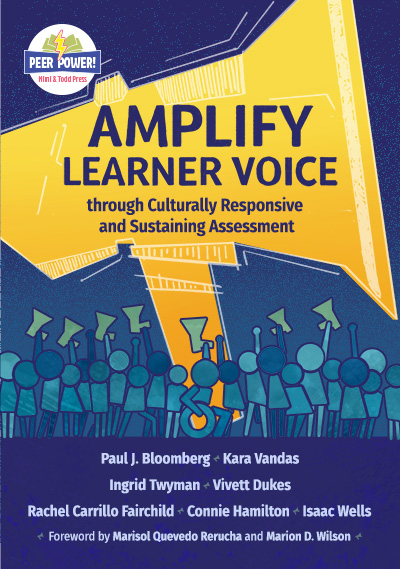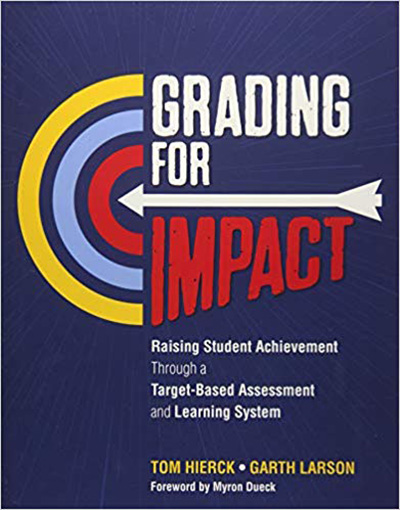How do your students learn more about themselves as learners?
What are your goals for Learner-Centered Assessment?
Ensure assessment advances intellectual, social, emotional, cultural, and political agency.
View PD OptionsCreate a culture where mistakes are embraced rather than avoided.
View PD OptionsDevelop grading practices that communicate exactly what and how students are learning.
View PD OptionsQuality, Customized Professional Learning That Works
Our professional learning pathways all have the same goal, to advance learner ownership, efficacy, and agency. We partner with your system to assess your needs and co-construct an action plan anchored in implementation science. We are ready to help and support you at any stage of your learning journey.
Our Learning Progression
Foundational Learning
Build a shared language of learning anchored in co-constructed goals and success criteria aligned to your mission and vision.
Job-Embedded Coaching
Empower educators using the gradual release of responsibility to model, coach, monitor, and analyze progress towards shared goals.
Sustainable Systems
Advance teacher agency to ensure risk-taking, innovation, and collective efficacy through quality implementation.
Asset-Based Assessment for Learning
How do you create conditions for self-empowerment so students can drive their own learning while contributing positively to the growth of others? Culturally responsive and sustaining assessment (CRSA) advances learners’ intellectual, social, emotional, cultural, and political agency by involving learners in every aspect of their learning process. Our CRSA assessment framework puts learners on winning streaks by honoring learners’ cultural identities and providing opportunities for learners to build on their assets so they reach their full potential.
Asset-Based Formative Assessment
- Engage families and connect to home language and culture
- Build culture of belonging through inclusive questioning
- Invite students to prove their own learning
- Amplify learner voice through self-peer assessment
- Advance metacognitive practices
- Maximize learner expertise through deliberate practice
Amplify Learner Voice Through Culturally Responsive and Sustaining Assessment
Paul J. Bloomberg, Ed.D., Kara Vandas, Ingrid Twyman, Vivett Dukes, Rachel Carrillo Fairchild, Connie Hamilton and Isaac Wells
Mistake Literacy
Why is it that sometimes students learn from mistakes while other times they stagnate or even regress? Make the shift from a culture of perfection to one in which mistakes are embraced rather than avoided. The Mistake Literacy Framework, designed by international educator Zak Cohen, is a learning framework designed to equip students with the skills and dispositions to recognize, react to, and repair their mistakes as an essential component of their learning.
Optimize Student Learning from Mistakes
- Explore the power of mistake literacy
- Apply research to optimize learning from mistakes
- Ensure students’ learning from mistakes
- Differentiate key instructional shifts to any learning context
- Cultivate a climate in which mistakes are visible, desirable, and beneficial
Competency-Based Grading
How does your system ensure equitable grading practices? Competency or target-based grading maximizes learning, increases equity and achievement, and provides honest and accurate communication and feedback to students and families regarding academic, social, and emotional capacity.
Competency Based Grading
- Prioritize academic-social-emotional learning targets
- Refine or replace subjective grading practices
- Design aligned assessment tasks to personalize learning
- Increase the accuracy and effectiveness of feedback
- Communicate expectations with students, families, and caregivers
Grading for Impact: Raising Student Achievement through a Target-Based Assessment and Learning System
Tom Hierck and Garth Larson
Resources
Meet the Pathway Team
Let's Connect
Complete the form below and we’ll be in touch to create a solution that addresses your needs and achieves your goals in learning spaces.
Prefer to talk on the phone? No problem! You can give us a call at: 619-432-2673
This form is on the "Let's Connect" Section on the Homepage
"*" indicates required fields










